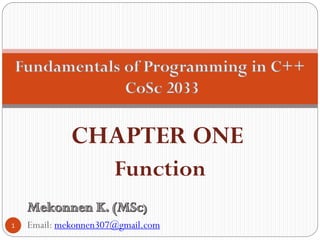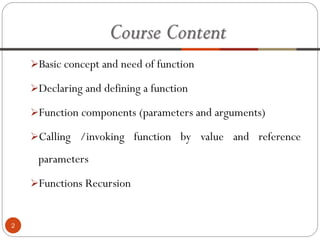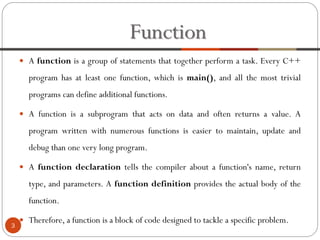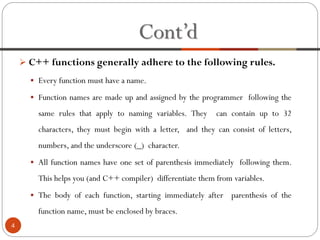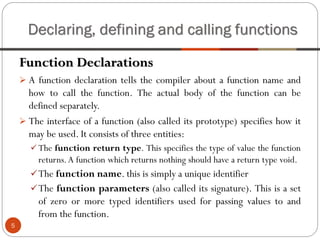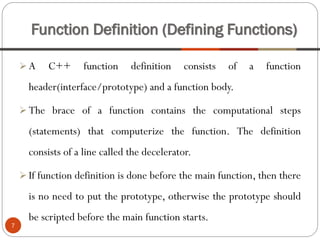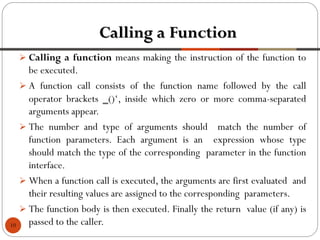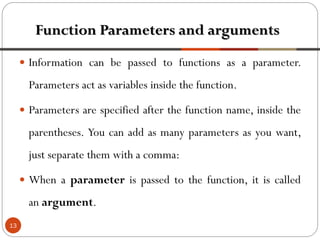The document provides an overview of functions in C++. It discusses declaring functions with prototypes specifying the return type and parameters. It also covers defining functions by providing the body enclosed in curly braces. Functions are called by specifying the name and passing arguments for any parameters. Parameters can be passed by value, where a copy is made, or by reference, where changes to the parameter also affect the argument. The document uses examples to demonstrate declaring, defining, calling, and passing arguments to functions. It also discusses default parameter values and recursion.
